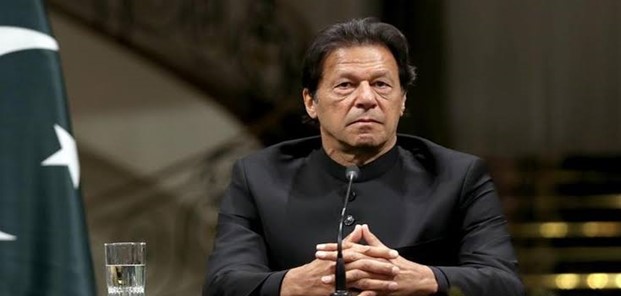Earlier this Sunday, the prime minister of Pakistan was ousted in a no-confidence vote which was spearheaded by the political opposition after a majority of Imran Khan’s close allies and coalition party abandoned him. The opposition covers the political spectrum and the radically religious group, the Pakistani Muslim League, with the head of one of the largest parties taking over as the new prime minister. Foreseeing defeat, Khan who has accused the opposition of conspiring with the United States to unseat him has beseeched his supporters to set up a nationwide protest.
At the onset of the process, Khan tried to avert the vote by calling for an early election but an order from the Supreme Court favoured the vote to go on. Despite the being on good terms with the military of which many of his political opponents have accused of assisting him to take over power in general elections in 2018. The opposition demanded Khan’s removal on account of economic mismanagement which has seen the Pakistani rupee plummeting in value with months of political turmoil and a constitutional crisis that required the Supreme Court to sort out.
In his speech on Friday, Khan emphasized his accusations that his opponents have allied with the United States to overthrow him based on his foreign policies which seem to favour Russia and China but not the United States.
Before the vote, Khan’s lawmakers addressed the Parliament expressing their anger concerning a letter from a senior U.S. official, whose name was withheld, informing top Pakistan diplomats that the relationship between Washington and Pakistan would improve if Khan is ousted. Shireen Mazari, Human rights minister, said the circular named Khan and said that if he was removed from power “all would be forgiven.” “Forgiven for what? What is our sin?” she asked.
Meanwhile, the U.S. State Department has denied meddling in Pakistan’s internal politics. Deputy State Department spokeswoman, Jalina Porter addressed the reporters on Friday that “those allegations were all false.”
Nevertheless, Khan has urged his supporters, especially youths who have been the backbone of his support since he came to power in 2018, to take to the streets. He charged them with the responsibility of protecting Pakistan’s sovereignty and to fight against U.S. dictations. According to Michael Kugelman, deputy director of the Asia Program at Washington -based Wilson Center, “Khan’s conspiracy allegations will resonate because there is a history of U.S. meddling in Pakistani politics.”
Khan’s loss following the vote of no-confidence has brought together some unlikely parties. These partners include a radically religious party, the Jamiat-e-Ulema-Islam, or Assembly of Clerics which teaches a different conservative brand of Islam in its schools. Many of Afghanistan’s Taliban and Pakistan’s own home-grown Taliban are all graduates from JUI schools. The second partner is the Pakistan People’s Party, led by the son of slain former Prime Minister Benazir Bhutto, and the Pakistan Muslim League.
“This would be the first time in Pakistan’s history that a no-confidence vote has been successful in ousting a Prime Minister – the fulfilment of a constitutional process that was far from guaranteed after several attempts by Khan to derail the vote,” said Elizabeth Threlkeld. “That is impressive and also significant, and could give Pakistan something to build on going forward.”


